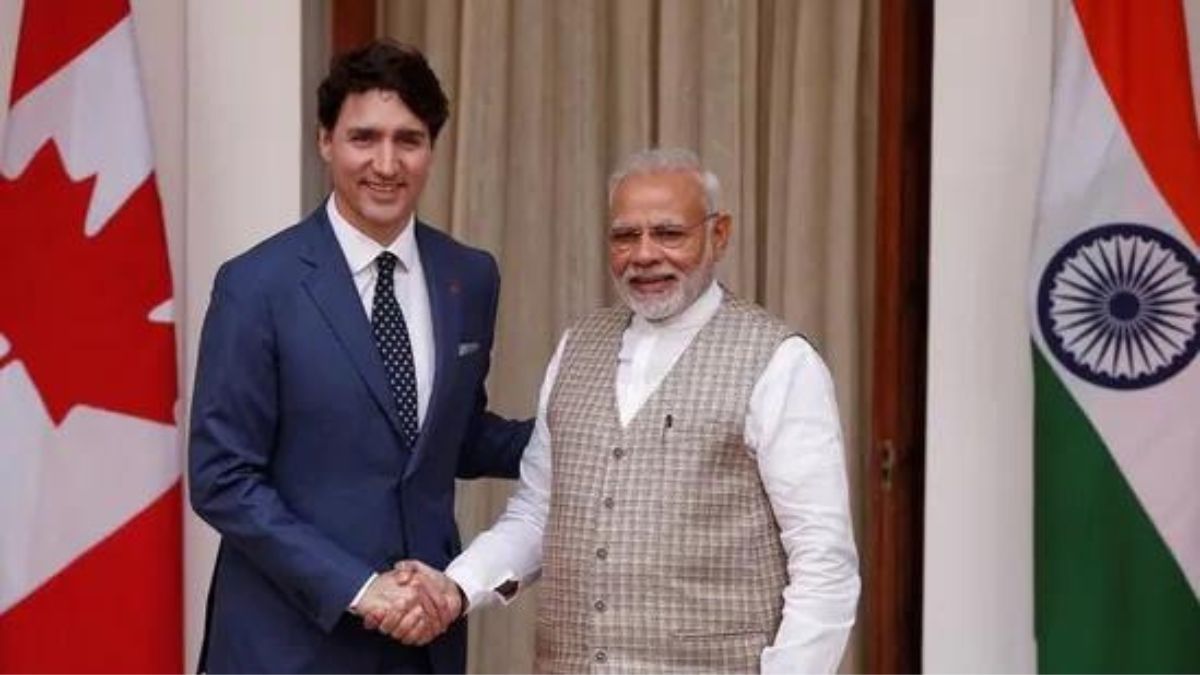India Expels Canadian Diplomat in Reciprocal Move Amidst Escalating Tensions Over Khalistani Terrorist’s Killing
The unnamed Canadian diplomat has been given five days to leave the country, marking a tit-for-tat move following Trudeau's allegations.

Advertisement
New Delhi : India has expelled a senior Canadian diplomat in response to Canadian Prime Minister Justin Trudeau’s claims linking the June killing of Khalistani terrorist Hardeep Singh Nijjar to the “agents of the Government of India.” The unnamed Canadian diplomat has been given five days to leave the country, marking a tit-for-tat move following Trudeau’s allegations.
Here are the key developments in this unfolding diplomatic dispute:
Trudeau’s Allegations: Prime Minister Trudeau asserted that his government had “credible allegations” linking Nijjar’s killing to individuals associated with the Indian government. India swiftly rejected these allegations, dismissing them as “absurd and motivated.”
Expulsion of Indian Diplomat: Canada’s allegations were accompanied by the expulsion of a senior Indian diplomat, identified by the Canadian foreign minister as the head of India’s Research and Analysis Wing (RAW) in Canada.
Indian Retaliation: Responding to the expulsion of its diplomat, India expelled a senior Canadian diplomat in a reciprocal move. The Indian government cited the “interference of Canadian diplomats in our internal matters and their involvement in anti-India activities” as the reason for this action.
Diplomatic Strain: Today’s developments mark a further rise in diplomatic tensions between the two nations. Prior to this, Prime Minister Narendra Modi had voiced concerns to Prime Minister Trudeau at the G20 summit in Delhi over secessionist activities and attacks on Indian diplomatic missions by Khalistan supporters in Canada. Canada had subsequently postponed a planned trade mission to India in October.
Trudeau’s Statement: Addressing an emergency session of the parliament, Trudeau emphasized, “Any involvement of a foreign government in the killing of a Canadian citizen on Canadian soil is an unacceptable violation of our sovereignty.”
Indian Rejection: India categorically rejected the Canadian Prime Minister’s allegations and expressed deep concern over Canadian political figures openly sympathizing with “such elements.”
Shift in Focus: The Indian foreign ministry’s statement noted that the unsubstantiated allegations sought to divert attention from Khalistani terrorists and extremists sheltered in Canada, who continue to threaten India’s sovereignty.
Call for Action: India urged Canada to take prompt action against all “anti-India elements” operating from its territory and highlighted the country’s history of providing space for various illegal activities.
Hardeep Singh Nijjar: Nijjar, the Khalistani Tiger Force leader and Canadian Sikhs For Justice (SFJ) head, was killed in Surrey in June. He was wanted in India for being the “mastermind” of a designated terror group and faced charges related to various acts of violence.
Ongoing Investigations: The Indian National Investigation Agency (NIA) is also probing recent attacks on Indian diplomatic missions in Canada, the UK, and the US, amid growing concerns over Khalistani activities in Canada.
Canada has become a focal point for expat Sikhs associated with Khalistani extremism, with the recent months witnessing multiple activities, including protests outside the Indian Embassy and threats against Indian diplomats, in the country. The strained diplomatic relations between India and Canada add complexity to the ongoing efforts to address these issues.
Advertisement

